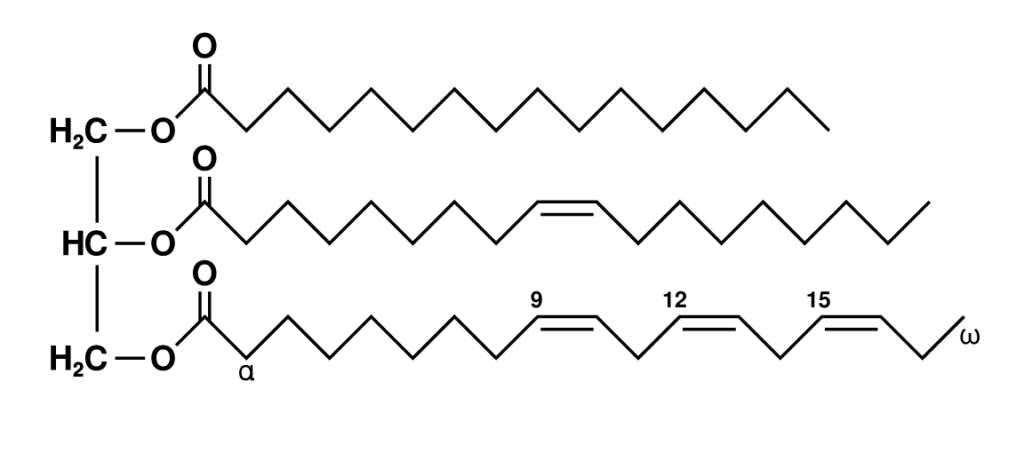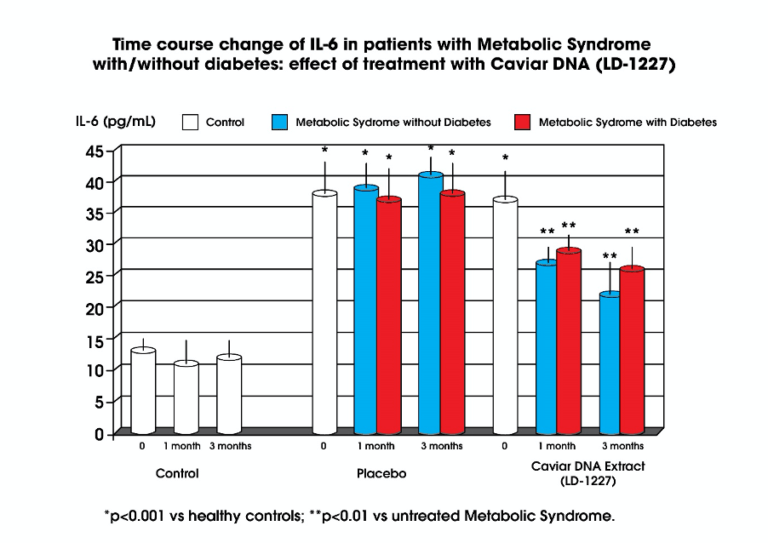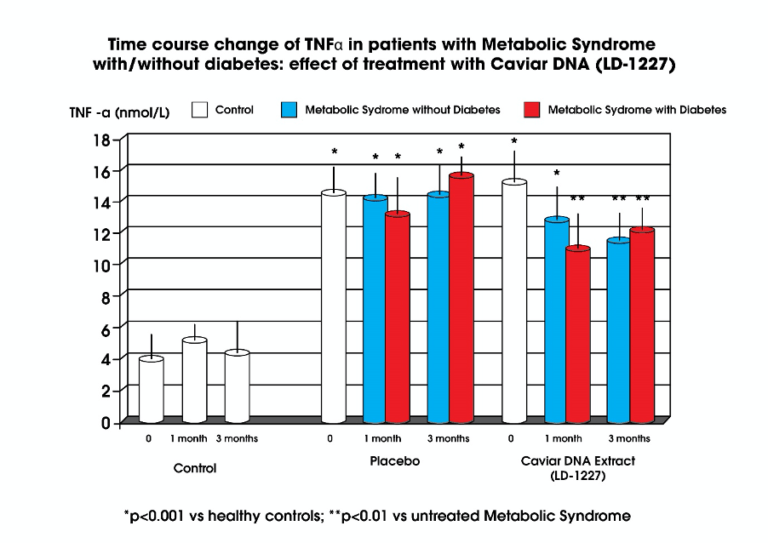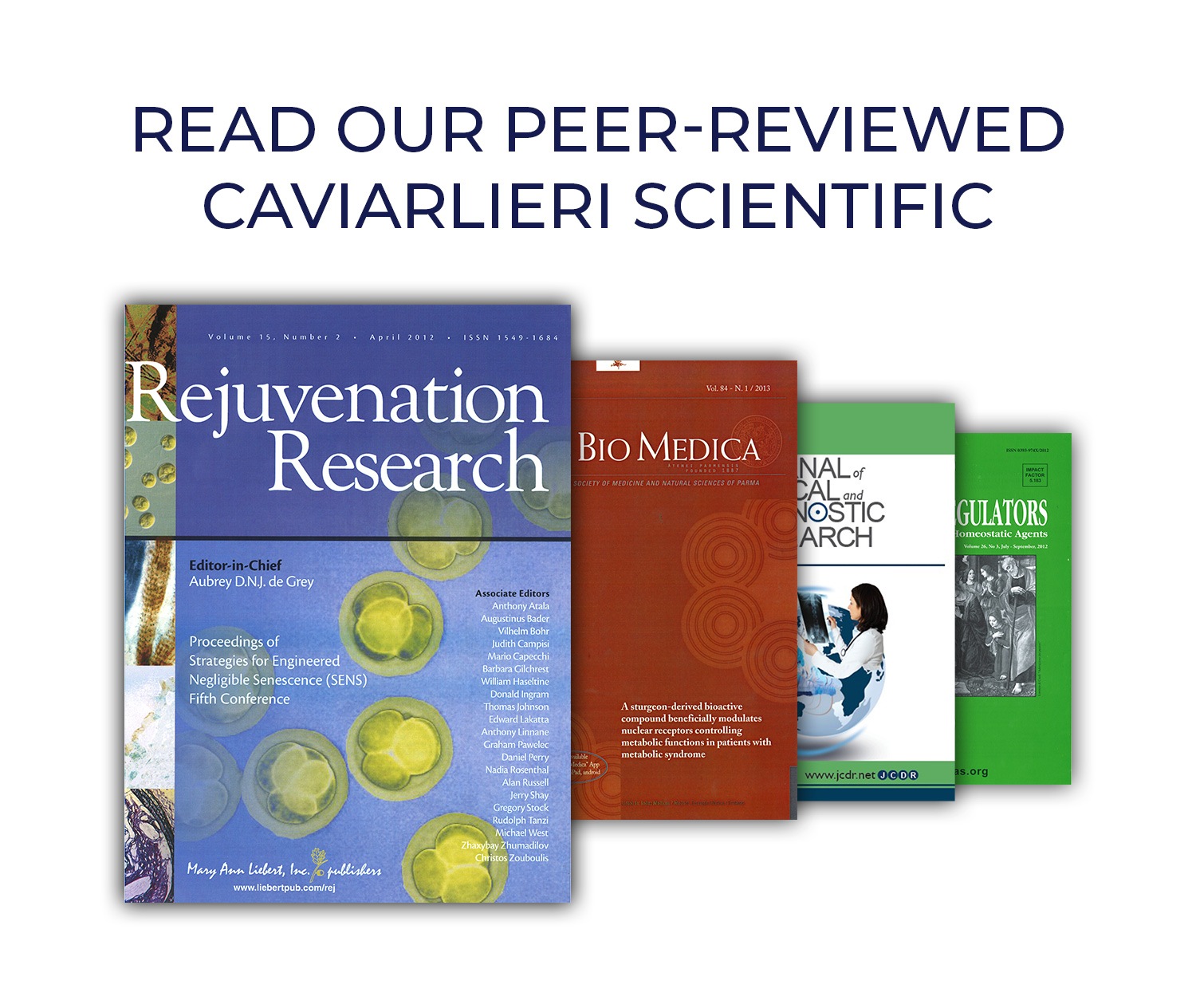Understanding Metabolic Syndrome
Caviarlieri | Published July 24, 2020
Metabolic syndrome is a term for a medical condition for a cluster of risk factors that, when they appear together in our body, they dramatically raise our risk of heart disease, heart failure, stroke and diabetes, as well as other non-cardiovascular conditions. Like smoking, it is one of the strongest predictors of heart disease. It is estimated that nearly one in three Americans have metabolic syndrome. Therefore it is important to make people understand the conditions that signifies metabolic syndrome in the first place so that it can help motivate them to make the needed changes to treat it.
Risk Factors for Metabolic Syndrome
According to the American Heart Association and the National Heart, Lung, and Blood Institute of the United States there are five risk factors that make up the cluster of conditions for metabolic syndrome. To be diagnosed with metabolic syndrome, you will have to have at least three of these risk factors.
1.Large Waist Size – Abdominal Obesity

When you’re larger around the middle — you have an apple or pear shape to your body , that can lead to metabolic syndrome. In general, this means you will have to have a waist size of 35 inches or more for women and 40 inches or more for men. The location and concentration of the fat is the real problem since excess belly fat leads to higher risk for heart disease and other conditions.
2. Cholesterol: High Triglycerides

Triglycerides are a type of fat (lipid) found in your blood. When you eat, your body converts any calories it doesn’t need to use right away into triglycerides. The triglycerides are stored in your fat cells.
If you regularly eat more calories than you burn, particularly from high-carbohydrate foods, you may have high triglycerides (hypertriglyceridemia).
High triglycerides may contribute to the hardening of the arteries or thickening of the artery walls (arteriosclerosis) — which increases the risk of stroke, heart attack and heart disease. Extremely high triglycerides can also cause acute inflammation of the pancreas (pancreatitis).
If you are unable to keep your triglycerides level below 150 mg/dL, you can be more likely to get metabolic syndrome. You can take medicine to lower your triglyceride levels, but the best way is to lose weight by exercising and cutting back on calories.
3. Too Little HDL Cholesterol
HDL is “good” cholesterol that may help remove LDL, the “bad” type of cholesterol, from your arteries. If the HDL is less than 50 mg/dL for a woman, or less than 40 mg/dL for a man, they will run the risk of suffering from metabolic syndrome. It is possible for you to be able to raise your HDL levels with weight loss, a better diet, and other lifestyle changes.
4. Insulin Resistance
Insulin resistance occurs when excess glucose in the blood reduces the ability of the cells to absorb and use blood sugar for energy. This increases the risk of developing prediabetes, and eventually, type 2 diabetes.
If the pancreas can make enough insulin to overcome the low rate of absorption, diabetes is less likely to develop, and blood glucose will stay within a healthy range.
5. High Blood Pressure
Blood pressure is the force of blood pushing against your arteries as your heart pumps and rests. If yours is higher than 130/85, you could get metabolic syndrome. But you may lower the numbers naturally if you lose just 5% of your body weight. Exercise, quitting smoking, and a healthy, low-salt diet can also help.
6. Other Possible Causes
If you have inflammation throughout your body or if your blood clots too easily, you may be more likely to get metabolic syndrome. Other conditions that may play a role are:
A. Fatty liver: Too many triglycerides and other fats in the liver
B. Polycystic ovarian syndrome: When women get cysts on their ovaries
C. Gallstones: Hard pieces made from digestive fluid iare in the gallbladder
D. Sleep apnea: You stop breathing over and over during sleep, which means your body does not get enough oxygen to breathe well.
E. Age: Your risk of metabolic syndrome increases with age.
Prevention
A lifelong commitment to a healthy lifestyle may prevent the conditions that cause metabolic syndrome.

- Eating a heart-healthy diet. Whether your heart is still healthy or is showing signs of trouble, you can significantly reduce your risks by sticking to a Mediterranean-style diet. Choose meals high in vegetables, fruits, nuts, whole grains and olive oil, low in saturated fat and low-glycemic foods.
- Stick to an exercise plan . Fitness helps improve all heart markers, from blood pressure to weight. Aim to exercise for 30 to 60 minutes a day, most days of the week.
- Keep a healthy weight . Find out from your doctor where you fall on the body-mass index (BMI), which calculates whether you’re the right weight for your height. Aim for a BMI below 25. Where your weight is located matters, too. So measure your waist—you want to stay below the target of 40 inches (men) or 35 inches (women).
- Continue to adhere to medical advice for overall health . It is important to work with your doctor to assess your overall risk of metabolic syndrome and related heart problems. Get key markers (such as blood pressure, cholesterol, and blood sugar) checked as recommended by your doctor. If you’ve been prescribed medication for high blood pressure, high cholesterol or insulin resistance, be sure to take it as directed.
- Quitting smoking and avoiding second-hand smoke . Ask your doctor about support programs that can help. If you don’t smoke, try not to be around people who do.
- Limiting alcohol . Drinking heavily can raise blood pressure and contribute to extra empty calories.
Nutrition Science – How Can Caviarlieri, Swiss Caviar Supplement Help Alleviate Metabolic Syndrome?

Chronic inflammation may represent a triggering factor in the origin of the metabolic syndrome. Obesity, physical inactivity, and ageing will result in the cytokine hypersecretion which will eventually lead to insulin resistance and diabetes if you are genetically or metabolically predisposed.
Caviarlieri is a Swiss Caviar Food Supplement formulated with the finest Caviar Cellular Extracts and marine peptides and highly polymerized collagen which have strong anti-inflammatory properties that can help to alleviate metabolic syndrome and the symptoms associated with this condition.

Caviarlieri is scientifically proven to help reduce the Tumour Necrosis Factor Alpha which is an important inflammatory biomarker for metabolic syndrome conditions. In addition, Caviarlieri can also reduce the C-reactive protein (CRP), a blood test marker for inflammation in the body. CRP is classified as an acute phase reactant, which means that its levels will rise in response to inflammation.
There are also several important current and ongoing studies which indicate that Caviarlieri triggers the epigenetic mechanisms of the cells to activate gene expression for inflammation reduction which will help alleviate the onset of any of the risks associated with metabolic syndrome.
Strong Anti-Inflammatory Properties of Caviarlieri Help Alleviate Metabolic Syndrome
Published in Peer Reviewed Journal – Acta Bio Medical / Official Journal of the Society of Medicine and Natural Sciences of Parma Vol 84-53-60/2013
A sturgeon-derived bioactive compound beneficially modulates nuclear receptors controlling metabolic functions in patients with metabolic syndrome
A. Lorenzetti, R. Catanzaro, G. Bertuccelli, N. Zerbinati, . Jain, U. Solimene, S.K. Yaduvanshi, N. Srivastava, E.Minelli, H. Yadav, C. Tomella, F.Marotta
The aim of the study was to test the possible effects of a novel sturgeon-derived compound Caviar DNA Extract (LD-1227) on inflammatory markers related to metabolic nuclear receptors in patients with metabolic syndrome (MS Patients). The study population consisted of 76 patients with metabolic syndrome and 30 healthy subjects who were maintained to their current treatments and randomly supplemented with the A Group with Caviar DNA Extract (LD-1227) supplements (n=38) and the B Group with placebo supplements (n=38) as compared to C) healthy controls (n=30). Caviar DNA Extract (LD-1227) supplements or placebo (water-soluble starch) supplements were given daily at breakfast and dinner to subjects for three months.
At the end of the study period, as compared to the B group, the A Group with Caviar DNA Extract LD-1227-treated patients showed a significant improvement of all parameters (hs-CRP, IL-6, TNF-alpha) tested, irrespective of the presence of diabetes. This clearly shows that although the metabolic syndrome remains a multifaceted condition requiring a complex approach, Caviarlieri (LD-1227) could be a potential safe therapeutic tool to be integrated into a wider treatment and preventive medicine schedule strategy.

Figure 1a. Time course change of IL-6 In patients with Metabolic Syndrome with/without diabetes: effect of treatment with Caviar DNA Extract (LD-1227). Throughout the whole study, the level of IL-6 was significantly higher in Metabolic Syndrome patients as compared to healthy controls and it was not affected by the presence of diabetes (p<0.05, fig 1). After intervention with Caviar DNA Extract (LD-122), IL-6 level decreased significantly in all Metabolic Syndrome patients (p<0.05 vs baseline and vs placebo group).
Note: Interleukin-6 is a cytokine not only involved in inflammation and infection responses but also in the regulation of metabolic, regenerative, and neural processes.

After intervention with Caviar DNA Extract (LD-1227), TNF-α level (inflammation) decreased significantly in all Metabolic Syndrome patients (p<0.05 vs baseline and vs placebo group).

The level of hs-CRP in patients with Metabolic Syndrome was significantly higher than in healthy controls (p<0.05, fig 2) and particularly in those with overt diabetes (p<0.05 vs MS patients without diabetes). After intervention with Caviar DNA Extract (LD-1227), hs-CRP significantly decreased (p<0.05 vs placebo).
Note: C-reactive protein (CRP) is a blood test marker for inflammation in the body. CRP is produced in the liver and its level is measured by testing the blood. CRP is classified as an acute phase reactant, which means that its levels will rise in response to inflammation.
A high-sensitivity C-reactive protein (hs-CRP) test, which is more sensitive than a standard test, also can be used to evaluate your risk of developing coronary artery disease, a condition in which the arteries of your heart are narrowed. Coronary artery disease can lead to a heart attack.

It is evident for those MS patients (both with and without diabetes) who received intervention of Caviar DNA extract (LD-1227) for 3 months that their Adiponectin–Resistin (AR) index decreased significantly versus those who have not received the intervention. The decrease in AR Index was statistically significant only after 3 months (p<0.05 vs untreated MS patients).
The decrease in AR Index will suggest that the protection and preventive effect of Caviarlieri is effective in reducing metabolic risk in obesity for all MS patients.
Note: Adiponectin–Resistin (AR) index was proposed as an indicator of metabolic risk in obesity.
Conclusive Summary
It is evident from the above studies that Caviarlieri is a potent and effective supplement for alleviating metabolic syndrome by its potency in reducing inflammation. From the studies it is clearly evident that after administering Caviar DNA Extract (LD-1227), levels of all tested cytokines (inflammatory biomarkers) in Metabolic Syndrome patients markedly decreased whereas the levels remained unchanged in patients receiving placebo supplements.. This suggests that Caviar DNA Extract (LD-122 could provide protection for Metabolic Syndrome patients and that this protection was proportionally more evident even for MS patients with diabetes.
More remarkably, the intervention with Caviar DNA Extract (LD-1227) has shown in human chondrocytes that this sturgeon-derived compound could effectively inhibit IL-1β-induced proliferation and inflammatory reactions via inhibited activation of the transcription factor NF-κB pathway. Caviarlieri also contains collagen elastin, protein and a rich array of other smaller unsaturated fatty acids, and structural phospholipids which may exert a synergistic action with Caviar DNA Extract (LD-1227)on multiple mechanisms of the inflammatory cascade to reduce its inimical effects.
Caviarlieri can therefore effectively help in the regulation of key metabolic nuclear receptor functions and diminish the inimical onset and risk of metabolic syndrome.

Subject
Recent Posts
-
The Amazing Benefits of Highly Polymerized Fish Collagen Peptides with Elastin – Caviarlieri
-
The World’s Most Effective Caviar DNA Extract with Marine Bioactive Peptides
-
Are Supplements effective for Joint Pain?
-
Why Is Sustainable Immunity Important for Your Long-Term Health
-
What is your “Body Age” – Biological Age?




